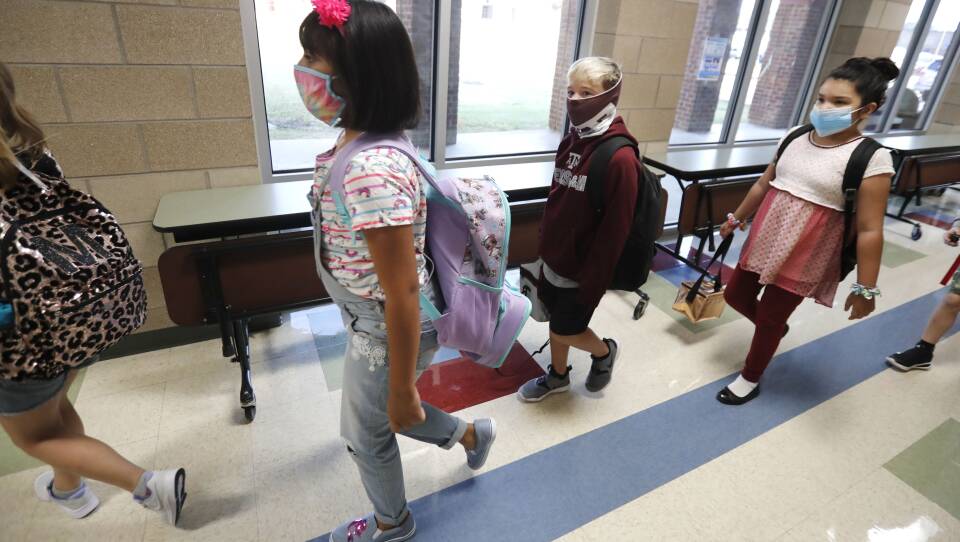It's been a big week for education. At school committee meetings across the state and the country, a firestorm of frustration, fear and worry has consumed parents, students and educators who are urging school districts not to bring students back — while those districts grapple with economic demands and the necessity of providing a place for children to go.
In Massachusetts, school districts now have until Friday, August 14 to deliver their final, comprehensive plans to the state Department of Secondary and Elementary Education, with three possible options: all in-person, all remote, or a hybrid option that alternates both.
For this episode, we bring back our protagonists from our series about love in the time of Coronavirus, Kristen Aber and Eric Mancini, two Rhode Island residents who are raising two girls, ages five and six.
“Ninety-five percent of my day is devoted to thinking about schools reopening and what that looks like,” Aber said, “and what are the risks and what are the benefits.”
Aber teaches high school and isn't thrilled about spending seven hours a day in a room with a group of people.
“We can call them kids, but I teach juniors and seniors in high school, so they're like, grown size people,” Aber said. “That's really scary to me because it's not a matter of if somebody contracts coronavirus at my school, it's more a matter of when.”
Aber says she struggles as a mother as well, wondering if she’ll be able to provide a sense of normalcy to her children.
“I just so badly want them to be in school,” Aber said. “I don't say that just from a selfish point of view where I would like some to reclaim some time, I say it because I see them struggling with not having time to be with other kids and to only be in our house. Like we have directly seen effects, definitely an increase in temper tantrums and just kind of a regression in their ability to regulate their emotions.”
"Why am I depriving my kids of social interactions when, in a month, they're just going to be in a big stew of children?"
For Aber, the roles of teacher and parent were much more distinctly separated before the pandemic.
“My students in my class will do the work that we are doing because ... it's not their home,” Aber said. “They look around and every other kid is doing it. … But with remote learning, you don't have that social pressure to do your work, and that burden to motivate students all falls on the parents. It's just not as effective. I can't motivate my girls the same way I can motivate my students.”
Aber and Mancini live in Rhode Island, where grades K-6 will be in-person in a month.
“My kids are going to be in school in a month with a bunch of kids whose families I don't know,” Mancini said. “It's made me think, like, why am I depriving my kids of social interactions when, in a month, they’re just going to be in a big stew of children?”
Mancini says having playdates with more and more families is not what he should be doing and he doesn't feel good about it, but it’s hard to reckon with.
“It's the kind of thing that if everyone does it a little bit, it leads to higher case loads,” Mancini said. “But there's this kind of risk-reward thing where, like I said, I can see my kids suffering because they don't have enough social outlets, why should I make them suffer when we're just all going to put our kids into a poorly ventilated school classroom?”









